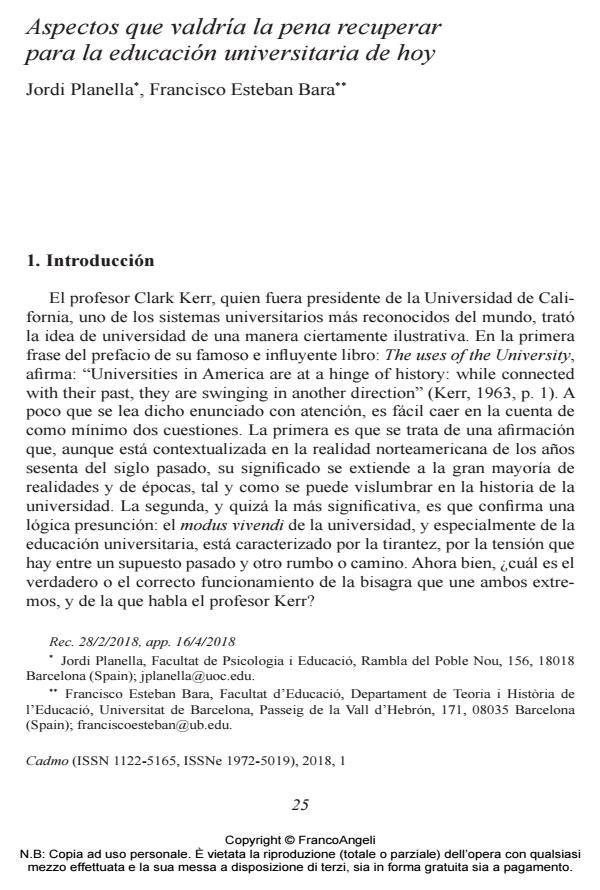Aspectos que valdría la pena recuperar para la educación universitaria de hoy
Titolo Rivista CADMO
Autori/Curatori Jordi Planella, Francisco Esteban Bara
Anno di pubblicazione 2018 Fascicolo 2018/1
Lingua Spagnolo Numero pagine 12 P. 25-36 Dimensione file 149 KB
DOI 10.3280/CAD2018-001004
Il DOI è il codice a barre della proprietà intellettuale: per saperne di più
clicca qui
Qui sotto puoi vedere in anteprima la prima pagina di questo articolo.
Se questo articolo ti interessa, lo puoi acquistare (e scaricare in formato pdf) seguendo le facili indicazioni per acquistare il download credit. Acquista Download Credits per scaricare questo Articolo in formato PDF

FrancoAngeli è membro della Publishers International Linking Association, Inc (PILA), associazione indipendente e non profit per facilitare (attraverso i servizi tecnologici implementati da CrossRef.org) l’accesso degli studiosi ai contenuti digitali nelle pubblicazioni professionali e scientifiche.
The article deals with the current state of higher education, where moral liberalism, pragmatism and utilitarianism could alternatively prevail. Nowadays higher education is generally valued and appreciated according to its level of utility, in a postmodern sense, i.e. with respect to efficiency and effectiveness. However, another higher education is possible, as the history of university and the philosophy of education shows us. Higher education has also to do with a process of personal transformation in the deepest sense of the term. For this reason, the article proposes to recover three aspects, namely: the recognition of the student as a true subject of moral learning; the moral excellence of higher education; and finally, learning specific disci¬plines and their contents.
Parole chiave:Higher education; ethics; philosophy of education; university teaching; higher education policy
Jordi Planella, Francisco Esteban Bara, Aspectos que valdría la pena recuperar para la educación universitaria de hoy in "CADMO" 1/2018, pp 25-36, DOI: 10.3280/CAD2018-001004